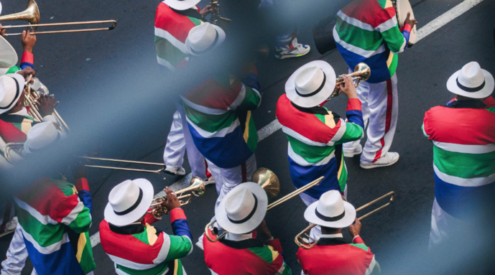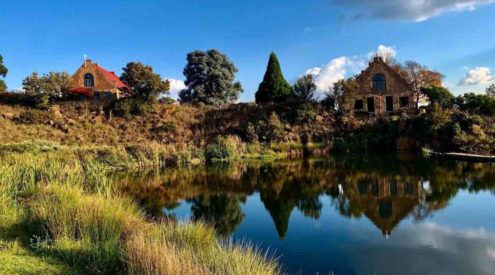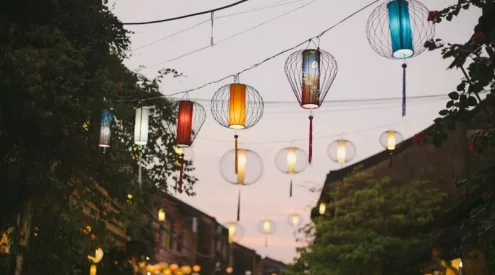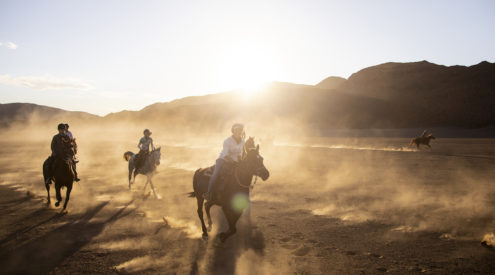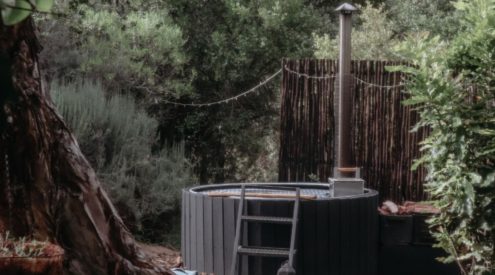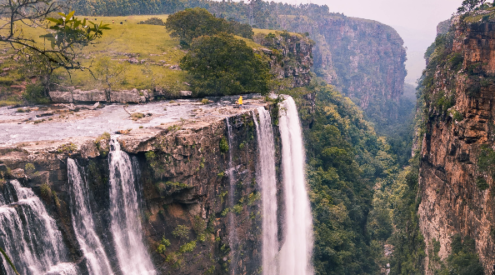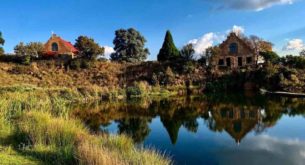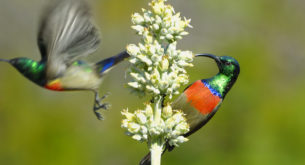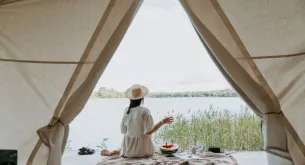Sarah Khan spotlights five laid-back experiences on Ibo Island. Immerse yourself in Mozambique’s Quirimbas Archipelago.

Local dhows returning home after the day’s catch. Photo by Claudia Hodkinson.
Also read: Dhow-dreaming: a holiday on Ibo Island in photos
The Portuguese fled Ibo in 1975 and with them, it seems, took all sense of time. At dusk, the sun hangs low on the horizon for impossibly long – but then, everything unfolds languidly here. A series of flights had deposited me on Mozambique’s easternmost reaches, on a velvety green speck against a vast expanse of turquoise water. Much of Ibo’s 3 500 hectares are dense with vegetation and its airport is secreted away in one of these forests. We jolted past a handful of simple thatched-hut villages on the drive along the north coast, passing Stone Town where the island’s colonial-era buildings are clustered. Ibo Island Lodge, on the northwest coastline, was my base and it was from here that I embarked on a dhow safari through the Quirimbas Archipelago, exploring the islands as locals and foreign traders always have. Here are five ways to experience Ibo’s best.
1. Learn about history

The island is full of picturesque buildings with a Portuguese influence. Photo by Claudia Hodkinson.
Ibo’s history is not a gentle one. Its prime seat in northeastern Mozambique, anchoring trade routes for slaves, ebony, spices and ivory that stretched from Europe to China, made it coveted territory. Each wave of foreigners – Arabs, Indians, Chinese, Portuguese – left their mark on the island’s motley architectural mix. After decades of neglect, many of these colonial structures lie abandoned, mouldering in the salt air.
Curious about the tales behind the wilting husks, I explored the Ibo’s main square, numerous mosques and churches, three forts, silversmith cooperatives, Hindu crematorium and Portuguese cemetery on long walks with guide Harris Mupedzi. We paused to chat to island historian João Baptista, who was named after the star-shaped 18th-century fort just a short walk away.
The son of locals who worked for the Portuguese administration, he was the only native boy allowed to attend school with Portuguese children, but after he fought in the struggle for Mozambique’s independence, he found himself jailed in the very fortress for which he was named. At 87 years, he’s still a gregarious character, and one of the Ibo’s few remaining links to its forgotten – and violent – legacy.
2. Laze away the days

Dreamy sunsets and sundowners by the pool go hand-in-hand. Photo by Claudia Hodkinson.
Today, the island’s finest address is Ibo Island Lodge, an elegant colonial pile fitted with antiques sourced from India by Zimbabwean-South African owners Fiona and Bruce Record. In 2006, they opened the lodge, which now spans 14 suites in three interleading waterfront villas. The result is luxurious, but with a distinct sense of place. Airy rooms are dominated by king-sized, four-poster beds, wash basins and tiles hewn from local marble, plush silk curtains in vibrant turquoise, and framed photographs of daily island vignettes. Long porches fitted with wicker divans and swings make an ideal nest for sitting back with a coffee as time ticks slowly by, and the staff have a refreshingly unrehearsed sense of hospitality that isn’t cloyingly polished.
3. Sail the islands

Dhow-dreaming: beautiful colours and textures of a life at sea. Photo by Claudia Hodkinson.
A cosseting stay at the lodge is best complemented with the relative simplicity of a boating safari through the Quirimbas chain on a traditional dhow, although an army of staff is dispatched to set up camps on various pristine islands. One night aboard the Joyce Merle was spent anchored at Mogundula, a deserted isle where guests experience life à la Robinson Crusoe – if only he were lucky enough to have a full camp materialise within minutes, complete with tents, a dining area, showers and a makeshift kitchen out of which dazzling feasts appear.
In my tent perched on a cliff over the water, I fell asleep to the sound of waves pummelling the rocks just below. The next day, we set sail for Matemo, a postcard-perfect island lined with palm trees swaying in unison; a boy from a local village scaled one so we could sample deliciously fresh coconut milk. Most of Ibo Island Lodge’s dhow safaris are four to seven nights, yielding more opportunities to island-hop through the archipelago.
4. Have water adventures

Local dhows returning home after the day’s catch. Photo by Claudia Hodkinson.
What Ibo lacks in immaculate, sandy beaches, it compensates for in water activities. Kayak through the mangrove forest just off the shore or opt for a leisurely sunset speedboat ride through the tangle of trees floating in the water. At low tide, walk through these trees straight to the island of Quirimba or take a boat to a nearby sandbank that vanishes come high tide.
The reefs off Mozambique’s shore are famed for diving and Ibo Island Lodge has a dive centre that offers courses and training. Not brave enough to go for my certification, I snorkelled the coral reefs on the dhow safari. We stopped off the coast of Rolas, a mostly uninhabited island save for bands of itinerant fishermen, so I could slip into the warm Indian Ocean where an underground carnival unfolded around me, stingrays, parrotfish and even Nemos twirling through corals of innumerable shapes and textures.
5. Taste local cuisine

Fresh fish, lobster, prawns and calamari top the menu daily. Photo by Claudia Hodkinson.
Dining options are virtually non-existent on Ibo, but languid, multi-course meals are the norm at the lodge. Most locals are involved in fishing and guests are plied from morning to night with lobster by the pool, smoked shellfish paté in the garden, crab curry on the terrace, much of it spiced with a Portuguese flavour. I was anticipating two days of sandwiches when we embarked on the dhow safari, but the culinary feats achieved by the staff were confounding: meal after meal of line fish with mashed potatoes and lime butter, Mozambican prawns with peri-peri sauce, and fresh breads appeared from a bonfire in the dark. Ibo long served as a nexus between far-flung cultures, and today that legacy persists on every plate.
Getting to Ibo
SAA flies from Johannesburg to Pemba five times a week. LAM flies daily, with a stop in Maputo.
When to go
The most temperate time of year on Ibo is between May and September, with August as its peak, when the days average 27 °C. Try to avoid the height of the rainy season from January to March, when temperatures rise and peak at around 32°C.
Need to know
Ibo is in a malaria-risk area. If you prefer not to take prophylactics, pack plenty of bug spray.
Cost
Meticais (MT) is the local currency. At the time of writing, R1 was equivalent to MT3. Dollars and rands are all widely accepted on the island. There are no ATMs, so be sure to take enough cash to cover tips and souvenirs from the local silversmiths.
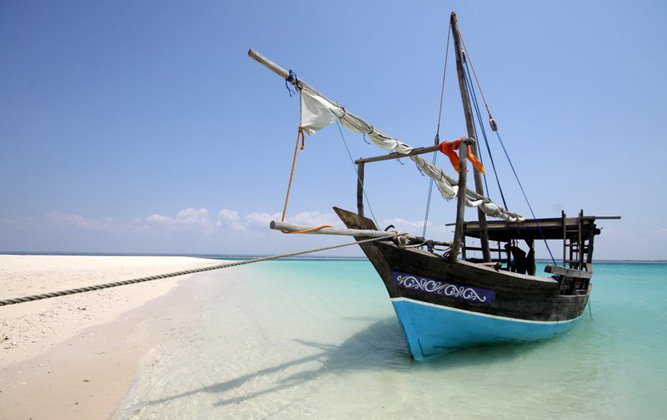
The island-hopping dhow safari with Getaway Travel includes return transfers from Pemba airport to Ibo Island, three nights at Ibo Island Lodge, four nights in beach camps, all meals, boat transfers to the sandbank beach and historical and cultural tours. Tel 021 530 3380, or find prices and more information here.
This article first appeared in the September 2014 issue of Getaway Magazine.

